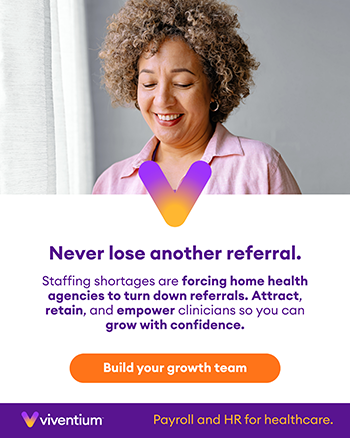Monthly Stipends Not Allowed
by Elizabeth E. Hogue, Esq.
Medical Directors:
Monthly Stipends Not Allowed
Monthly stipends to Medical Directors for referrals of patients could cost you. Earlier this month, a hospice provider in Georgia settled claims of violation of the federal Anti-Kickback statute (AKS) and the federal False Claims Act (FCA) by agreeing to pay $9.2 million. The allegations include payments of kickbacks, including monthly stipends, to Medical Directors in exchange for referrals of patients. These practices resulted in three whistleblower lawsuits against the hospice by former employees. They will receive $1.5 million.
Marketing, not Monthly Stipends
In the meanwhile, marketing strategies utilized by post-acute providers are generating fierce competition for referrals, especially Medicare beneficiaries who need home health services! As a result, providers are appropriately committing more and more resources to marketing activities. Providers are, for example, entering into agreements with referring physicians to provide consulting services to their organizations. These legitimate relationships may easily be misunderstood by enforcers.
Consulting Physicians
First, it is important to acknowledge that providers of services in patients’ residences need consulting physicians’ services. Examples of services that are genuinely needed, from a business perspective, may include the following:
- Consultation regarding clinically complex cases
- Assistance with the development and maintenance of specialty programs
- Communication with physicians who provide inappropriate orders for care, do not return signed orders on time, or are unresponsive to staff members who are seeking modifications to treatment plans
As providers know, however, these types of arrangements raise important legal issues related to potential violations of the AKS, the federal so-called Stark laws, the FCA, and state statutes that are probably similar to these federal statutes.

Avoid Trouble with Specific Contracts
Providers are likely to avoid violations if they meet the requirements of the personal services “safe harbor” under the AKS and the contractual exception under the Stark laws. The safe harbor and exception generally require providers to pay consulting physicians who also make referrals to them based upon written agreements that require payments at fair market value for services actually rendered without regard to the volume or value of referrals received.
Practically, Providers Should:
- Pay physicians who also make referrals
- on an hourly basis
- not a set monthly amount of stipends
- Develop standardized agreements and use them consistently with all referring physicians who receive consulting fees
- Providers cannot afford to use a variety of different agreements that may not meet applicable requirements
- Staff must understand that they can use only the standard approved agreement and cannot modify it without advance written approval from a designated, knowledgeable individual
- Document services rendered and the amount of time spent on these activities.
- Documentation is crucial
- Providers should develop and implement policies and procedures that permit payments to physicians only after appropriate documentation to support payments has been received and reviewed
- Avoid agreements for consulting services with physicians whose services they do not actually use
- even if they make no payments to them
- terminate these agreements if they do not need the services covered by them or it may appear that the only purpose for the agreements is to induce referrals as opposed to a documented need for services
- Avoid having numerous consulting physicians/medical directors
- Although there are usually no limits on the number of consulting physicians/medical directors that providers can have at any given time, a very large number is likely to invite scrutiny by regulators and should be avoided
- How many is too many? The number should certainly bear some relationship to the size of the provider organization and the geographic area served.
- Beyond this general guideline, common sense must prevail. The bottom line is: does the provider have legitimate work for every consulting physician?
- Avoid asking consulting physicians to perform commercially reasonable services that are related to the volume and value of referrals made
- Providers cannot, for example, ask referring physicians to assist with quality assurance activities that
- Entail their review of charts of patients whom they referred to the provider
- Ensure the more referrals made, the more money consulting physicians make
- Providers cannot, for example, ask referring physicians to assist with quality assurance activities that
Final Thoughts
Providers are more likely to avoid enforcement activities when they follow these practical guidelines. Violations hurt providers and referral sources alike. In view of the possible adverse consequences, expenditures of financial and other resources are certainly justified to get it right.
# # #


Elizabeth Hogue is an attorney in private practice with extensive experience in health care. She represents clients across the U.S., including professional associations, managed care providers, hospitals, long-term care facilities, home health agencies, durable medical equipment companies, and hospices.
©2025 Elizabeth E. Hogue, Esq. All rights reserved.
No portion of this material may be reproduced in any form without the advance written permission of the author.








